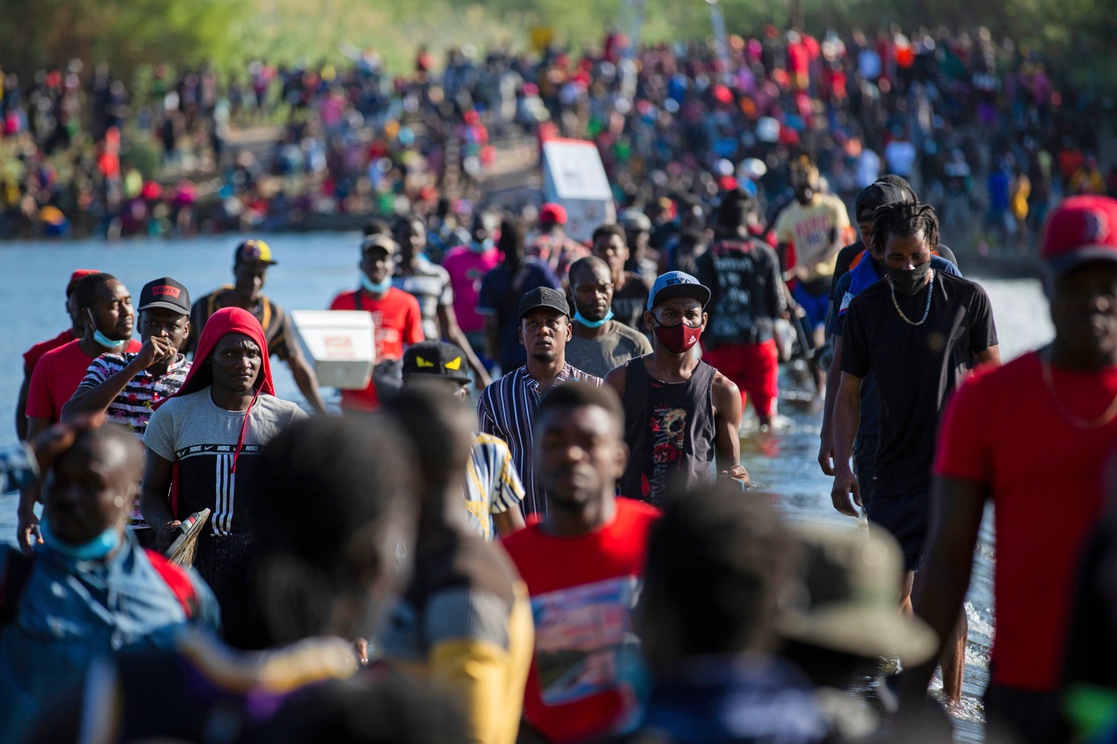Among the challenges we face in this century are climate change, flooding in some parts of the globe and drought in others, dwindling supplies of potable water, mass famine, the inequitable distribution of wealth and resources, war, oppression, and other natural disasters.
A major fallout of all these challenges is irregular migration – a phenomenon present in most regions of the world. This is now a major political and social problem since it creates divisions and prejudice in recipient countries that many politicians use in their domestic political campaigns as we have seen from the rise of populists in many developed countries.
The United Nations High Commission for Refugees (UNHCR) calculates that at any given time there are some 82 million forcebly displaced persons around the world, of whom some 26 million are refugees. About 85% of refugees are housed in camps in developing countries that can ill afford to have them there.
An internally displaced person (IDP) is one who has been displaced in their own country. A refugee is one who has crossed a border to seek asylum from violence or violence in their home country. The countries with the largest IDP populations were Syria (7.6 million), Colombia (6 million), Iraq (3.6 million), the Democratic Republic of the Congo (2.8 million), Sudan (2.2 million), South Sudan (1.9 million), Pakistan (1.4 million), Nigeria (1.2 million) and Somalia (1.1 million).
Refugees can be political or economic.
Political refugees flee their countries in fear for their lives, and their situations are governed by international conventions that set out rules for their treatment by receiving states and the United Nations and its agencies.
Economic refugees have no such protections since their lives are not in danger in their home countries, and all that they seek is a better economic future elsewhere.
Both types of refugees and IDPs find themselves in this situation because of one or more of the challenges facing us globally.
Climate change has impacted every corner of the globe. Floods, storms, pollution, congestion, lack of food or potable water have created flows of people within and between countries
Wars in Yemen, Iraq, Afghanistan, Syria, Libya and the continuing saga of oppression by repressive regimes in Asia, Africa, and Latin America have sent millions to flee their homes and seek refuge abroad.
Migration creates tensions in recipient countries.
In the developed world the massive influx of Muslim refugees from these regions has resulted in increased Islamophobia and violence against these refugees in many parts of the world. As well, the rise in anti-Semitism in many places can be traced in part to the reactions of some to the plight of Palestinian refugees and the lack of any progress towards a two-state solution to the Israeli-Palestinian conflict.
Closer to home, the caravans of migrants from Central America massed along the U.S.-Mexico border are a major cause for concern. Lack of economic opportunities at home, narco- and political violence, lack of educational opportunities and poor or non-existent governance force people to seek a better life elsewhere. While most do not meet the definition of a refugee as defines by international law, they do pose a challenge for the countries through which they transit and their main destination – the United States.
Countries of the Northern Triangle (Guatemala, Honduras, and El Salvador) as well as some Caribbean states do nothing to stop the flow of people northward since it acts as an economic and social safety valve. As well, Venezuela has seen an outflow of over 5 million people fleeing from the Maduro dictatorship to neighboring countries.
Refugee producing countries cannot sustain their populations and provide the services and security one would expect. In addition, many states depend on remittances from their citizens who migrate to sustain their economies. In some cases, earnings from remittances exceed earnings from exports.
What can be done?
Increasing the budgets of the Red Cross and the UNHCR, funding decent camps in recipient countries, as well as contributions to non-governmental organizations (NGO’s) can help mitigate their suffering and ensure that fewer die trying to reach distant shores.
Investments by developed states to improve economic conditions in these countries and ensure that jobs, education, health, and security services are available for all can also help keep potential migrants at home.
But migration has been a reality since Biblical times and will continue to be a reality. I see no short- or medium- term solutions. Dictatorships and wars are not about to disappear, and the causes of migration outlined above will continue apace. Global conditions will continue to threaten the lives of many everywhere.
As such, we must address this crisis as humanely as possible, and accept the fact that we are, at least in part, our brother’s keeper.
Lea, de este misma autor: Are We Ready?
Edición: Laura Espejo
Aprueban la conformación de las Salas Colegiadas durante una sesión extraordinaria
La Jornada Maya
Reincidencia afecta entre un tercio y hasta la mitad de los pacientes, con pronóstico clínico adverso
Ángeles Cruz Martinez
Rodríguez Zamora informó que el turismo se mantiene fuerte, dinámico y en crecimiento
Juan Carlos Pérez
EL IMCO señala la necesidad de mejorar la calidad de oportunidades y redistribuir el trabajo de cuidados
Juan Carlos Pérez
